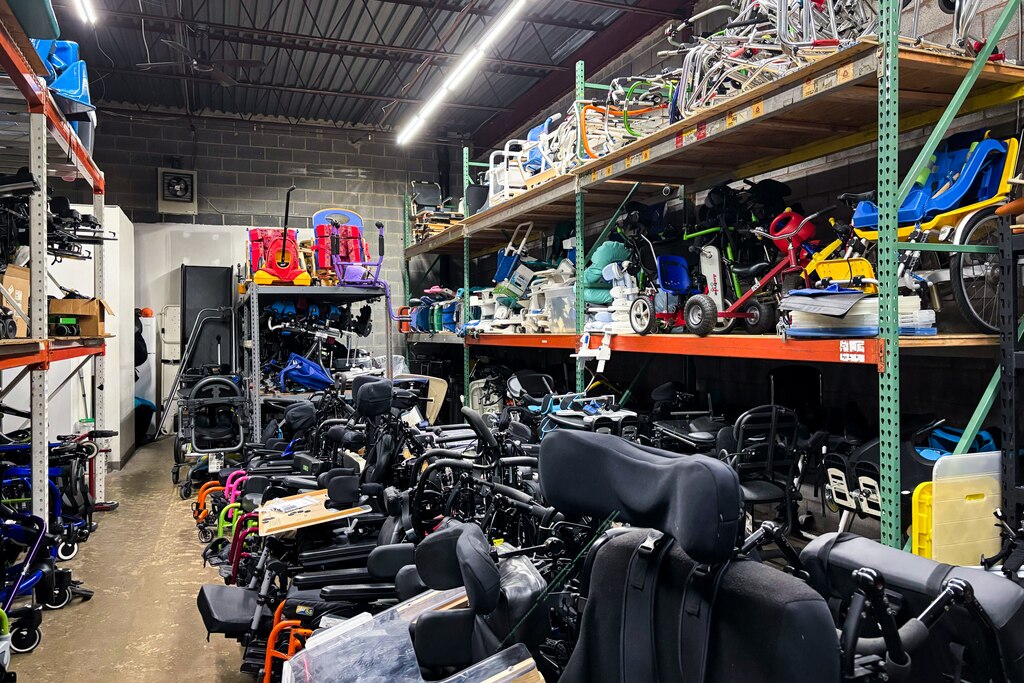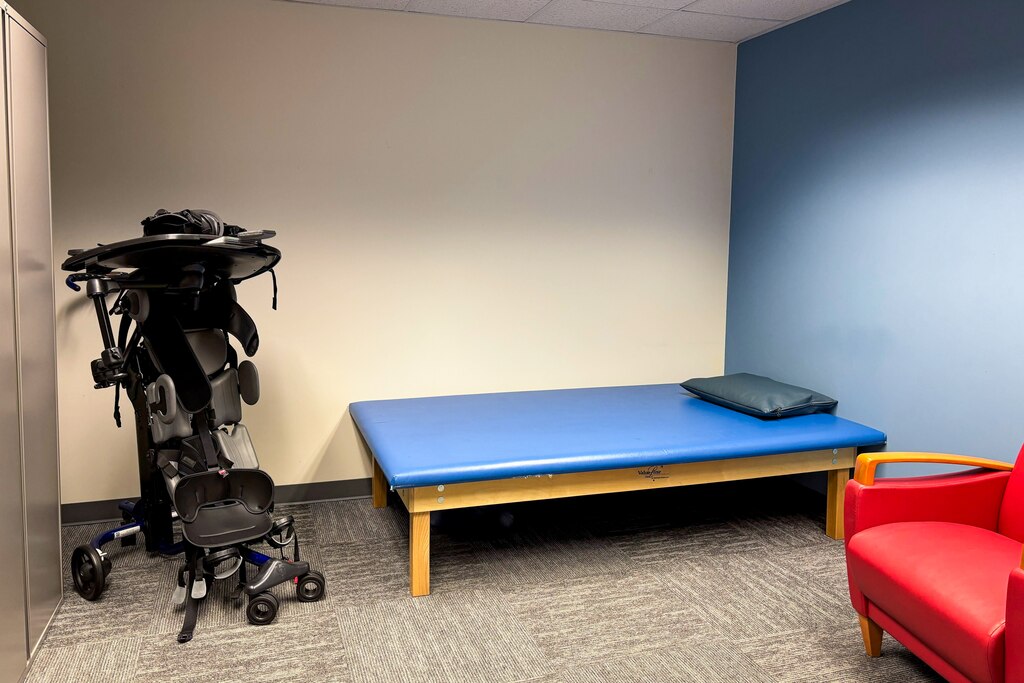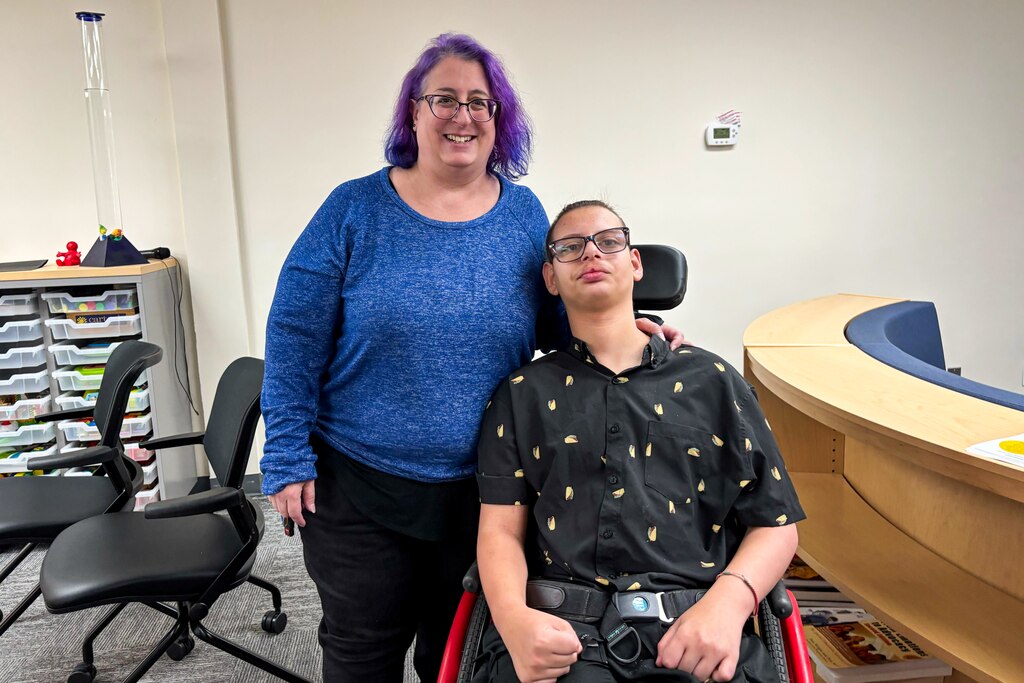Debra Sahlin had the worst day of her life when Ryan, her son, was a year old. He suffered a traumatic brain injury when his father accidentally hit him in the head with a golf club. Ryan, now 31, was never the same.
Sahlin, a nurse practitioner, found that much of the medical support Ryan had as a child disappeared when he became an adult. So she started Ryan’s Place Foundation in 2010 to support people with disabilities whose care options dwindle as they age.
On Wednesday she expanded the foundation’s mission with the grand opening of a new primary care center, Ryan’s Place Health Services, in Gaithersburg.
“I’m here to tell you, during the transition from pediatric to adult care, people die, and I’m not being dramatic,” Sahlin said. Focusing on these patients, she said, the clinic will assure that fewer of them fall through the cracks.
Separate from the center, the foundation provides free access to wheelchairs and other equipment that insurance usually doesn’t cover. It also hosts a variety of social activities for siblings and parents of people with disabilities.
The for-profit center, cofounded by Sahlin and business partner Greg Miller, was funded by three Maryland state grant programs.

It sits in a one-story office park and was designed to accommodate disabled clients. In one room, an examination table is wider and lower to the ground than most for easier patient access. In another, hundreds of wheelchairs in various sizes are packed together for patients to borrow.
Ryan’s Place will likely begin seeing patients in November. Right now, staff members include Sahlin, Miller, practice manager Dominique Addison-West and a physical therapist.
“I think our patients are going to like it because when you go to a doctor’s office, it’s not normally your provider that’s doing everything from start to end,” Addison-West said.
Born of experience
Sahlin tells harrowing stories about her troubles finding care for Ryan.
Once, when he became sick as an adult, his pediatrician refused to see him, she said. Four other providers wouldn’t either. The one who did seemed too uncomfortable to touch Ryan and misdiagnosed a life-threatening condition.

Finally, after several trips to the physician’s office, she took him into the emergency room and declared she wasn’t leaving until someone figured out what was wrong. It turned out to be internal bleeding.
“If I would have waited another week, my kid would be dead,” Sahlin said.
She attributes some doctors’ discomfort in working with people with disabilities to a lack of education. She plans to train nurses, nurse practitioners and social workers at Ryan’s Place to meet the needs of disabled clients.
In the 1990s, people with disabilities weren’t living past childhood, Sahlin said. But now a majority are transitioning into adulthood, and the health care system “needs to catch up.”
Isolated families
Among the dozens who came to the opening of the center were mothers who’d sought care for their children from Ryan’s Place Foundation, including Andrea Levy. She attended with her 15-year-old son, Jason, who sat in a rainbow-colored wheelchair. She first sought support from Ryan’s Place when he was 18 months old.

Being a special needs parent is “extremely isolating,” Levy said. “Once you have a diagnosis, you lose pretty much your entire friend group.” Children hit milestones at different ages, she continued, and some people might not want their kids playing with “the weird kid.”
But at Ryan’s Place, everyone’s invited to social gatherings. Jason’s two older sisters have participated in several, including an art program.
Nicole Giganti, who spoke at the event, has five children. The oldest, Avery, has a rare mitochondrial disease and requires intensive care.
Giganti said the care center will be a “lifeline” for her family.
“A lot of times when you transition into adult services, your child is not looked at as a person of value anymore, and that’s just heartbreaking,” Giganti said. “Everybody has value.”



Comments
Welcome to The Banner's subscriber-only commenting community. Please review our community guidelines.